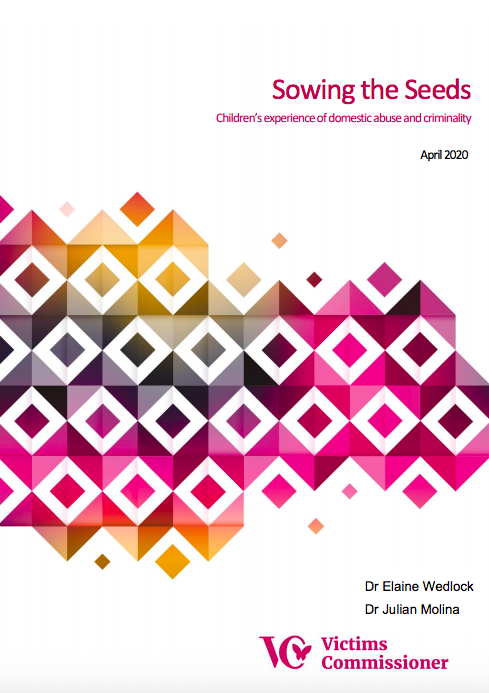This report explores the overlap between children’s experience of domestic abuse and children’s offending behaviour and makes recommendations for early intervention and consistent practice. This review is published in the midst of the Coronavirus pandemic lockdown, with everyone subject to measures designed to contain the spread of the virus. But these measures present an unprecedented risk for victims of domestic abuse, who are compelled to stay within a home shared with an abusive partner.
The findings of this report suggest this should not be regarded as a short-term problem; children who are exposed to domestic abuse are not casual bystanders and the evidence suggests impacts will be huge and far reaching. Before the coronavirus, the criminal justice system was focused on dealing with another virus, again afflicting all parts of our society: a surge in gang related crime, appalling violence inflicted by children onto other children through knife crime, as well as so called “county lines” dealing in drugs, with children pulled into dangerous criminal activity. Dame Vera says: “My review finds there is an overlap between children’s experience of domestic abuse and children’s offending behaviour. A quarter of children who were identified as having socially unacceptable behaviour also have identified concerns about domestic abuse of a parent or carer. Practitioners who support children out of gang related activity tell us the children and young people they work with commonly come from backgrounds of domestic abuse.”
The review finds children who experience domestic abuse may seek alternative relationships outside of the home, leaving them vulnerable to sexual and criminal exploitation. Children in alternative school provision, those in unregulated care homes and children sent far from home are also particularly vulnerable. The criminal justice response to child criminal exploitation is inconsistent, with different police forces taking different approaches. Children who are victims of criminal exploitation through county lines drug dealing may be seen as offenders rather than victims, depending on which police officer or police force they encounter. Early intervention to identify and support children and young people who experience domestic abuse is crucial. Thresholds for intervention are currently so high that things have to be “really serious” before children’s services intervene “I am calling for children who experience domestic abuse to be recognised in statute as victims of crime. I want to see targeted interventions and support to help these children and young people recover from domestic abuse. Children must not be made more vulnerable to exploitation by sending them far away from their homes and support networks when taken into care. Therefore, I am calling for all care homes to be regulated, including those for young people aged 16 who can be just as vulnerable and susceptible to exploitation as those under 16. I am also calling for a more comprehensive strategy for children as victims of criminal exploitation, serious violence and organised criminal groups.
The coronavirus pandemic could lead to a substantial rise in the number of children and young people who experience domestic abuse. The domestic abuse they are experiencing today could, act as one of the factors influencing their experience of offending behaviour such as serious youth violence and criminal exploitation in the future. One social work practitioner told researchers: “By not dealing with things at the outset for children of domestic abuse, you are sowing the seeds for the end result of violence amongst children that we are getting.” Dame Vera Baird says: “I hope that instead of sowing the seeds of violence, we can sow the seeds for a brighter future for our children and young people.”

